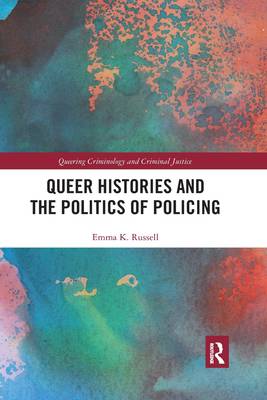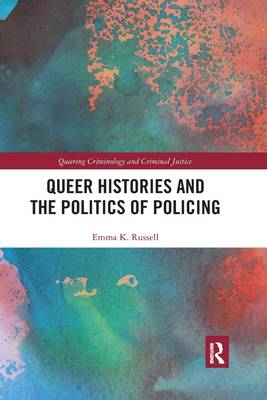
- Retrait gratuit dans votre magasin Club
- 7.000.000 titres dans notre catalogue
- Payer en toute sécurité
- Toujours un magasin près de chez vous
- Retrait gratuit dans votre magasin Club
- 7.000.0000 titres dans notre catalogue
- Payer en toute sécurité
- Toujours un magasin près de chez vous
Description
Despite ongoing challenges to the criminalisation and surveillance of queer lives, police leaders are now promoted as allies and defenders of LGBT rights. However, in this book, Emma K. Russell argues that the surface inclusion of select LGBT identities in the protective aspirations of the law is deeply tenuous and conditional, and that police recognition is both premised upon and reproductive of an imaginary of' 'good queer citizens'--those who are respectable, responsible, and 'just like' their heterosexual counterparts.
Based on original empirical research, Russell presents a detailed analysis of the political complexities, compromises, and investments that underpin LGBT efforts to achieve sexual rights and protections. With a historical trajectory that spans the so-called 'decriminalisation' era to the present day, she shows how LGBT activists have both resisted and embraced police incursions into queer space, and how--with LGBT support--police leaders have re-crafted histories of violence as stories of institutional progress.
Queer Histories and the Politics of Policing advances broader understandings of the nature of police power and the shifting terrain of sexual citizenship. It will be of interest to students and researchers of criminology, sociology, and law engaged in studies of policing, social justice, and gender and sexuality.
Spécifications
Parties prenantes
- Auteur(s) :
- Editeur:
Contenu
- Nombre de pages :
- 176
- Langue:
- Anglais
- Collection :
Caractéristiques
- EAN:
- 9780367784287
- Date de parution :
- 31-03-21
- Format:
- Livre broché
- Format numérique:
- Trade paperback (VS)
- Dimensions :
- 156 mm x 234 mm
- Poids :
- 254 g

Les avis
Nous publions uniquement les avis qui respectent les conditions requises. Consultez nos conditions pour les avis.






